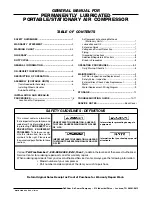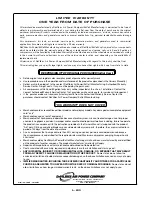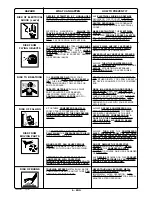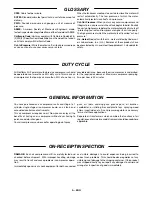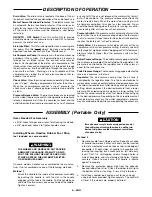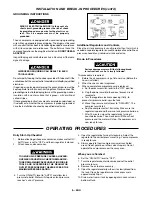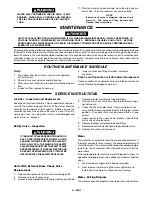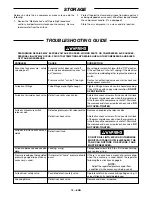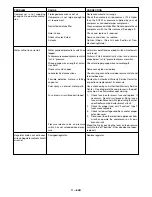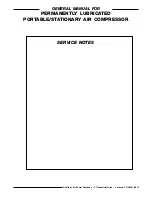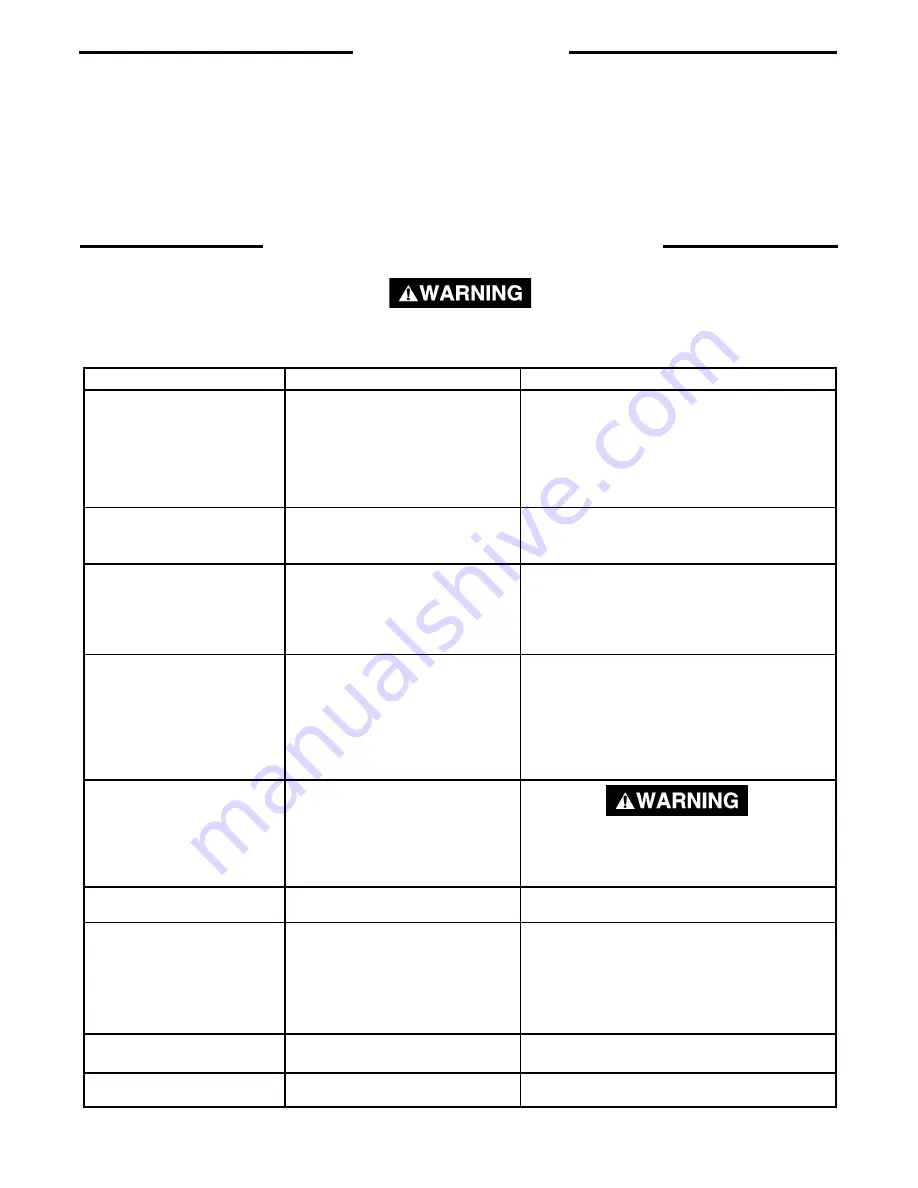
10 — ENG
PROBLEM
CAUSE
Move the pressure switch lever to the “OFF” position.
If the outfit doesn’t shut off, unplug. If the electrical
contacts are welded together, replace the pressure
switch.
Contact an authorized service center to check and
replace pressure switch.
Tighten fittings where air can be heard escaping.
Check fittings with soapy water solution.
DO NOT
OVER-TIGHTEN.
A defective check valve results in a constant air leak
at the pressure release valve when there is pressure
in the tank and the compressor is shut off. Drain tank
then remove and clean or replace check valve.
DO
NOT OVER-TIGHTEN.
Remove and replace the release valve.
A defective check valve results in a constant air leak
at the pressure release valve when there is pressure
in the tank and the compressor is shut off. Drain tank
then remove and clean or replace check valve.
DO
NOT OVER-TIGHTEN.
Torque head screws to 8 ft. lbs. If this does not stop
leak, replace o-ring.
If there is an excessive amount of pressure drop
when the accessory is used, adjust the regulator
following the instructions on page 6.
NOTE:
Adjust the regulated pressure under flow
conditions (while accessory is being used).
Operate safety valve manually by pulling on ring. If
valve still leaks, it should be replaced.
Remove and clean, or replace.
PERFORMING REPAIRS MAY EXPOSE VOLTAGE SOURCES, MOVING PARTS OR COMPRESSED AIR SOURCES.
PERSONAL INJURY MAY OCCUR. PRIOR TO ATTEMPTING ANY REPAIRS, UNPLUG THE COMPRESSOR AND BLEED
OFF TANK AIR PRESSURE.
CORRECTION
Pressure switch does not shut off
motor when compressor reaches “cut-
out” pressure.
Pressure switch “cut-out” too high.
Tube fittings are not tight enough.
Defective or dirty check valve.
Defective pressure switch release valve.
Defective check valve.
Defective air tank.
Leaking o-ring.
It is normal for “some” pressure drop to
occur.
Possible defect in safety valve.
Defective check valve.
Excessive tank pressure - safety
valve pops off.
Air leaks at fittings.
Air leaks at or inside check valve.
Air leaks at pressure switch
release valve.
Air leaks in air tank or at air tank
welds.
Air leaks between head and valve
plate.
Pressure reading on the regulated
pressure gauge drops when an
accessory is used.
Air leak from safety valve.
Knocking Noise.
DO NOT DRILL INTO, WELD OR OTHERWISE
MODIFY AIR TANK OR IT WILL WEAKEN. THE
TANK CAN RUPTURE OR EXPLODE. TANK
MUST BE REPLACED.
2.
Protect the electrical cord and air hose from damage (such
as being stepped on or run over). Wind them loosely around
the compressor handle. (If so equipped)
Store the air compressor in a clean and dry location.
Before you store the air compressor, make sure you do the
following:
1.
Review the “Maintenance” and "Operating Procedures"
sections and perform maintenance as necessary. Be sure
to drain water from the air tank.
TROUBLESHOOTING GUIDE
STORAGE

